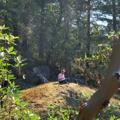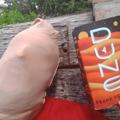The Weaver Reads apžvelgė autoriaus Becky Chambers knygą A Psalm for the Wild-Built (Monk and Robot, #1)
Goodreads Review of a Psalm for the Wild-Built
5 žvaigždutės
This is exactly what I needed to read at this point in my life. It's so beautiful, and I cried my way through the entire second half. Perhaps it isn't anything groundbreaking, but it has the same "vibes" as a Studio Ghibli film or the video game, Celeste. It's no wonder that this book is so loved.
This is exactly what I needed to read at this point in my life. It's so beautiful, and I cried my way through the entire second half. Perhaps it isn't anything groundbreaking, but it has the same "vibes" as a Studio Ghibli film or the video game, Celeste. It's no wonder that this book is so loved.















